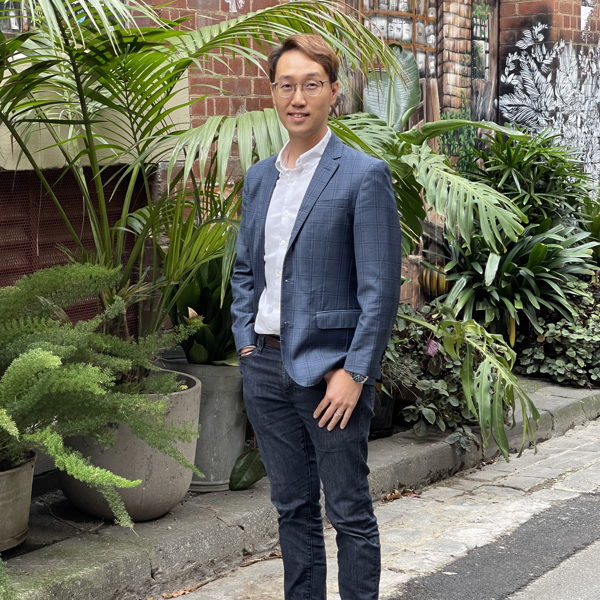New Starter in SUSTAIN Team

With a background in mechanical engineering and building physics, a PhD in climate and building energy, our latest erbas SUSTAIN team member, Tony Lam, comes with 19+ years of experience in Hong Kong in sustainable development, ESD and decarbonisation.
What is your previous experience in engineering and ESD?
My background is in mechanical engineering and building physics, I am a specialist in Sustainable Development (SD), ESD, building physics modelling and decarbonisation, with 19+ years of experience. I was awarded my PhD in 2008 with my research work on Climate and Building Energy.
Before joining erbas™, I worked in a multi-national engineering consultancy firm in Hong Kong for 15+ years, managing sustainability business in the East Asia Region. I managed a group of ESD engineers in Hong Kong and also set up the operation of a new ESD team in Taiwan.
I integrated ESD elements into various types of projects and have handled a number of major sustainability projects in East Asia such as Hong Kong, Taiwan and Korea including Hong Kong Zero Carbon Building, Hong Kong Architectural Services Department Carbon Neutrality Study, Hong Kong MTRC Corporate Decarbonisation Roadmap, Chinese University of HK (CUHK) Solar Photovoltaic Application Plan at Campus, and Taipei Performing Art Centre.
I was also the Project Manager and Carbon Specialist for award-winning projects like Singapore South Beach (my favourite one!), Hong Kong K11 Atelier King’s Road Commercial Tower, Swire Two Taikoo Place, and Nan Fung AIRSIDE.
I am the winner of HK CIC Young Innovator Award 2017, the WELL Faculty nominated by International WELL Building Institute (IWBI) to suggest and implement the health and wellness building designs, and also the recipient of the WELL Faculty Award 2020. I was also the Global Advisory Council Member to IWBI Research in 2020-2022. I was the Board of Director of Hong Kong Green Building Council (HKGBC) in 2022-2023.
What unique insights or approaches do you bring to ESD based on your background in engineering consultancy, particularly your experience in Hong Kong?
ESD implementation in the built environment has to be practical and feasible. The application of ESD features needs priority in terms of cost, impact and design/operation difficulty – that’s why strong knowledge in engineering and carbon is so important. Engagement and communication of various disciplines, such as owner, planner, architect, structural engineer, building services engineer, contractor and operator are very important, to ensure a successful sustainability implementation.
For example, to tailor a decarbonisation roadmap for the property portfolio of a corporation, I would study the feasibility of every carbon reduction measure for those properties with the life-cycle perspective, and communicate with the operators to investigate the application/upgrade practicality. Once the carbon reduction measure list is agreed, the measures are mapped to the upgrade plan of the properties with life-cycle cost consideration. The decarbonisation roadmap is then presented to the corporate’s board and then is implemented according to the time stages. Throughout the implementation period, carbon reduction tracking via performance monitoring is required to ensure the progress. Hence it is really an integrated approach with holistic planning in order to succeed.
How do you tailor ESD strategies to meet the unique requirements or goals of different clients or projects?
Every client has their own focus or policy for sustainability, it is essential to understand these details and tailor make the applicable strategies and technologies.
For instance, a new building project may be required to go for zero carbon, in this way microclimate, passive design and smart building services systems will play an important part. While another company may already have the SBTi and GRESB plans under the ESG policy however they may need to have a comprehensive digital approach to track the ESG performances of their existing properties.
What motivates you to work in the field of ESD, and why did you choose to join erbas™ specifically to further develop this area of expertise?
I love working in the ESD field, as I can create a positive influence on the projects and community and I have opportunities to collaborate with the best people from different disciplines. erbas™ has a vision of driving excellence in projects and generating breakthroughs as well as innovation for the benefits of projects. The company also includes specialists in all building services disciplines. All these form a very important base to implement ESD work successfully.
How do you stay updated on the latest trends, technologies, and best practices in ESD, and how do you incorporate these into your work?
Capturing the ESD trends, skills and policies are key since they are evolving rapidly. I am in the community of the leading international institutes and universities, such as green building councils and I am also the WELL Faculty of International WELL Building Institute (IWBI).
Finally, how do you envision contributing to the growth and success of ESD offerings in Australia, and what excites you most about this opportunity?
erbas™ really excites me as they have the best and most passionate people of all building services and ESD disciplines. With my experience in decarbonisation, building physics and wellness, I am keen to work together with my colleagues and industry partners to expand our capabilities and offerings in Australia for various types of projects like new/existing buildings, portfolio, masterplan, and specialist projects. I am excited to support erbas™ on the path to becoming one of the best ESD consultants in Australia, delivering practical and reliable solutions.
Latest News, Resources & Media

Meet Bruce Skipp

Our new Queensland offices

Building a Better Proposal: What Sets Winning Bids Apart

Building-Integrated Photovoltaics

2025 Biophilic Design Awards

Circular Transition Indicators for the Built Environment


